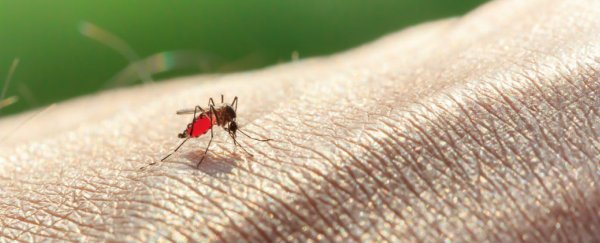Lab tests have highlighted the potential of a new drug to treat malaria in affected patients, prevent it from spreading, and ward off future infections with a single dose. Developed by chemists at Dundee University in Scotland and the not-for-profit group Medicines for Malaria Venture, the drug acts against each of the life stages of the malaria parasite, making it a promising option for those already infected and as a vaccination.
"There are other compounds being developed for malaria, but relatively few of [these] have reached the stage we're at," lead researcher Ian Gilbert said in a press release. "What's most exciting is the number of potential attributes, such as the ability to give it in a single dose which will mean that medics can make sure a patient completes the treatment."
Named DDD107498, the drug has been in development since 2009, and was made using one of almost 4,700 compounds tested for effectiveness against malaria at the Drug Discovery Unit (DDU) facilities in the UK.
In tests with mice and other lab animals, the researchers report that the drug identified and attacked the protein involved in the production of various vital enzymes and proteins in the malaria parasite's cells throughout all stages of its lifecycle, which prevented the spread and development of the disease. The parasite was successfully cleared from both the blood and livers of the affected animals.
"The compound we have discovered works in a different way to all other antimalarial medicines on the market or in clinical development, which mean that it has great potential to work against current drug-resistant parasites," one of the team, Kevin Read, said in the release. "It targets part of the machinery that makes proteins within the parasite that causes malaria."
The results have been published in Nature.
According to Steve Connor at The Guardian, the first phase of clinical trials will begin in the coming months, and if the drug makes it to the market, will likely be sold for less than $1 a dose, "which is considered the maximum price that the poorest affected countries can afford", he says.
As David Reddit, CEO of Medicines for Malaria Venture, pointed out to BBC News, malaria threatens half the world's population - the half that can least afford treatment and vaccination against it, so a cheap, one-off medication could be the most promising option in development. "DDD107498 is an exciting compound since it holds the promise to not only treat but also protect these vulnerable populations," he said.
